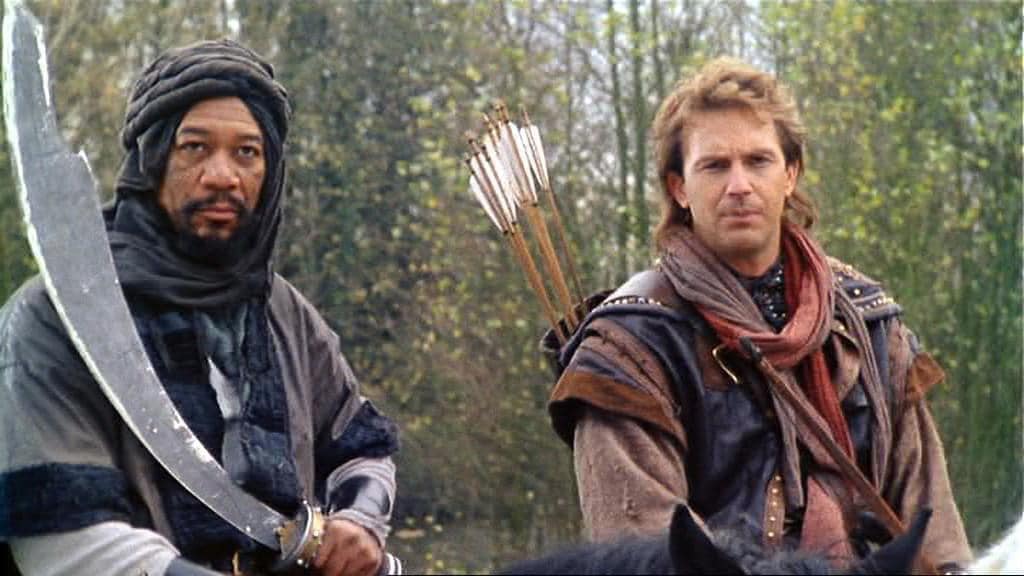Robin Hood: Prince of Thieves (1991)

The Timeless Appeal of “Robin Hood: Prince of Thieves” (1991)
Introduction
“Robin Hood: Prince of Thieves,” directed by Kevin Reynolds and released in 1991, stands out as a notable adaptation of the classic English legend. With Kevin Costner in the lead role, the film intertwines adventure, romance, and a timeless fight against tyranny. This modern retelling of the Robin Hood saga continues to captivate audiences with its blend of heroism, camaraderie, and social justice.
Plot Overview
The film follows Robin Hood (Kevin Costner), an outlawed nobleman who returns to England after fighting in the Crusades. Upon his return, he discovers his homeland under the oppressive rule of the Sheriff of Nottingham (Alan Rickman). Driven by a sense of justice and a desire to protect the innocent, Robin Hood takes up the mantle of a masked vigilante. He forms a band of loyal followers, including the Merry Men, to challenge the Sheriff’s rule and champion the cause of the common people. The film combines thrilling action sequences with heartfelt moments as Robin Hood also finds love with Maid Marian (Mary Elizabeth Mastrantonio).

Themes and Significance
“Robin Hood: Prince of Thieves” explores several enduring themes that resonate across generations:
- Justice and Equality: At its core, the film emphasizes the fight against injustice and the quest for equality. Robin Hood’s rebellion against the corrupt Sheriff of Nottingham symbolizes the broader struggle against oppression and the desire to level the playing field for the underprivileged.
- Heroism and Sacrifice: Robin Hood’s character embodies classic heroic traits—bravery, loyalty, and selflessness. His willingness to risk everything for the greater good highlights the importance of standing up for one’s principles, even in the face of overwhelming odds.
- Camaraderie and Brotherhood: The bond between Robin Hood and his Merry Men illustrates the strength found in unity and teamwork. Their shared mission and mutual support showcase the value of solidarity in overcoming challenges.
- Romance and Redemption: The romantic subplot between Robin and Maid Marian adds depth to the narrative, offering a glimpse into personal relationships amidst the broader struggle for justice. Additionally, Robin Hood’s journey is also one of personal redemption, as he seeks to right the wrongs of his past.

Cultural Impact
Since its release, “Robin Hood: Prince of Thieves” has left a lasting impression on popular culture. The film’s memorable score, composed by Michael Kamen, Bryan Adams, and Robert John “Mutt” Lange, features the iconic hit song “(Everything I Do) I Do It for You,” which has become synonymous with the movie. The film’s portrayal of Robin Hood as a charismatic and flawed hero has influenced subsequent adaptations of the legend, reinforcing the character’s place in modern folklore.
Conclusion
“Robin Hood: Prince of Thieves” remains a beloved classic for its dynamic storytelling, strong performances, and exploration of timeless themes. Through its depiction of heroism, justice, and love, the film continues to inspire and entertain audiences, reaffirming the enduring appeal of the Robin Hood legend.











